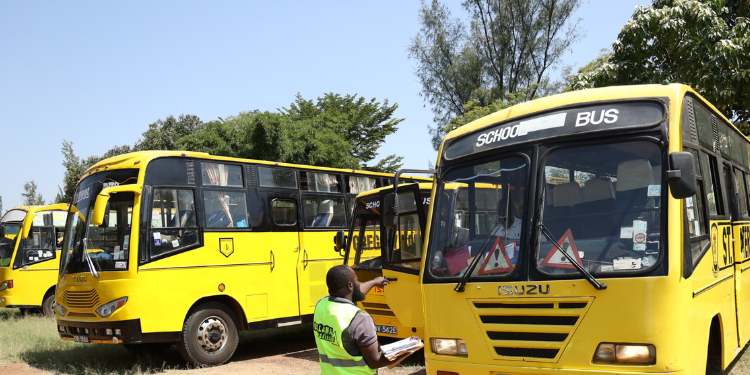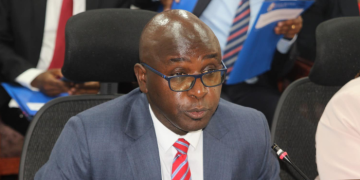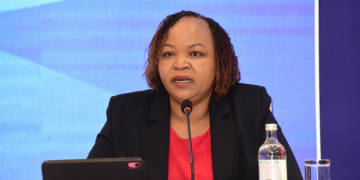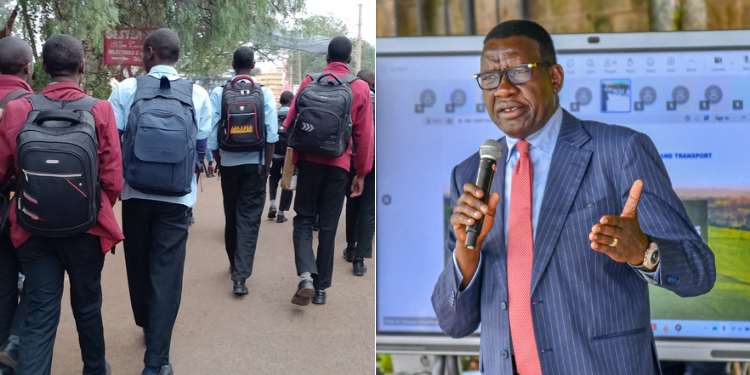The Ministry of Roads and Transport has issued new directives for Public Service Vehicles (PSVs) and road users ahead of the reopening of schools across the country. The move follows the release of crash investigation reports into several deadly accidents that occurred along major highways in August 2025.
Roads Cabinet Secretary Davis Chirchir in a statement on Friday, August 23, said the findings from the reports point to three primary causes of the recent road crashes and fatalities. These include road infrastructure, driver behaviour, and the mechanical condition of vehicles.
In response, CS Chirchir said that key agencies, including the National Transport and Safety Authority (NTSA) and various road authorities, have begun implementing several of the recommendations outlined in the crash reports.
These include treatment and improvement of hazardous road sections, enhanced surveillance of compliance with KS 372:2019 — the Kenya Standard for Road Vehicles Passenger Body Construction — through vehicle inspection, and the ongoing road user education and law enforcement efforts.
Directives to all PSV drivers
As part of safety precautions during the school reopening period, the Ministry has urged PSV drivers and motorcyclists to:
- Ensure their vehicles are well-maintained and properly licensed
- Exercise caution on the road, especially near school zones
- Avoid unnecessary honking near schools
- Drive slowly and maintain safe speeds around educational institutions
Also Read: NTSA Issues Notice to Schools Ahead of Reopening
Additionally, pedestrians have been advised to remain vigilant on roads, use designated crossings, avoid distractions such as mobile phones, and make eye contact with drivers before crossing.
“We also urge pedestrians to be very careful near roads as your safety must come first. Always use designated crossings, avoid distractions such as phones, and make eye contact with drivers before crossing the road. The Ministry remains committed to working with all partners to make our roads safer for every Kenyan,” said CS Chirchir.
This comes after the National Transport and Safety Authority (NTSA) issued a comprehensive safety checklist for drivers and conductors under its ongoing campaign, Operation Watoto Wafike Salama. The initiative aims to promote the safe transportation of children and reinforce road safety protocols—particularly for vehicles involved in school transport.
In a public notice issued on Wednesday, August 20, NTSA outlined mandatory requirements that all PSV operators must meet. These include ensuring that vehicles are roadworthy, possess valid inspection certificates, road service licenses (RSL), and insurance documents.
One of the key enforcement areas is the requirement for functional speed limiters capable of actively transmitting data to NTSA’s Intelligent Road Safety Management System (IRSMS)—a central platform for real-time PSV compliance monitoring.
NTSA safety checklist for all drivers and conductors
- Vehicles must be properly serviced, with critical components like brakes, tires, lights, and side mirrors in optimal condition.
- Drivers and conductors must hold valid driving licenses and PSV badges.
- All children on board must wear seat belts.
- No excess passengers are permitted.
- No child—or any part of their body—should protrude outside the vehicle.
- Operators must report any child suspected of being under the influence of drugs or alcohol to the relevant authorities.
Also Read: NTSA Issues Safety Checklist to All Drivers and Conductors as Schools Reopen
As part of this campaign, NTSA also announced free motor vehicle inspection clinics for school transport vehicles. These inspections will be conducted on Saturday, August 23, from 9:00 a.m. to 3:00 p.m. at all designated NTSA inspection centres nationwide. The goal is to assist vehicle owners and school administrators in identifying and implementing corrective measures to ensure child safety.
This comes as students and pupils across the country are expected to travel back to school for the start of the third term on Monday, August 25, 2025. The term is scheduled to run for nine weeks and will culminate in the national examination period, making it a critical academic session for both learners and educators.
In addition to the movement of students, teachers will also be travelling long distances to return to their respective workstations following the three-week August holiday. The expected spike in travel has prompted the government to step up efforts to ensure road safety and prevent accidents during this busy back-to-school period.
Follow our WhatsApp Channel and X Account for real-time news updates.





















![Billions Each Top Kenyan Bank Has Made So Far In Profits This Year [List] Q3 2025 Results For Equity, Kcb, Co-Op, Absa And Other Banks]( https://thekenyatimescdn-ese7d3e7ghdnbfa9.z01.azurefd.net/prodimages/uploads/2025/11/C0-OP-KCB-Equity-Absa-360x180.png)





















































